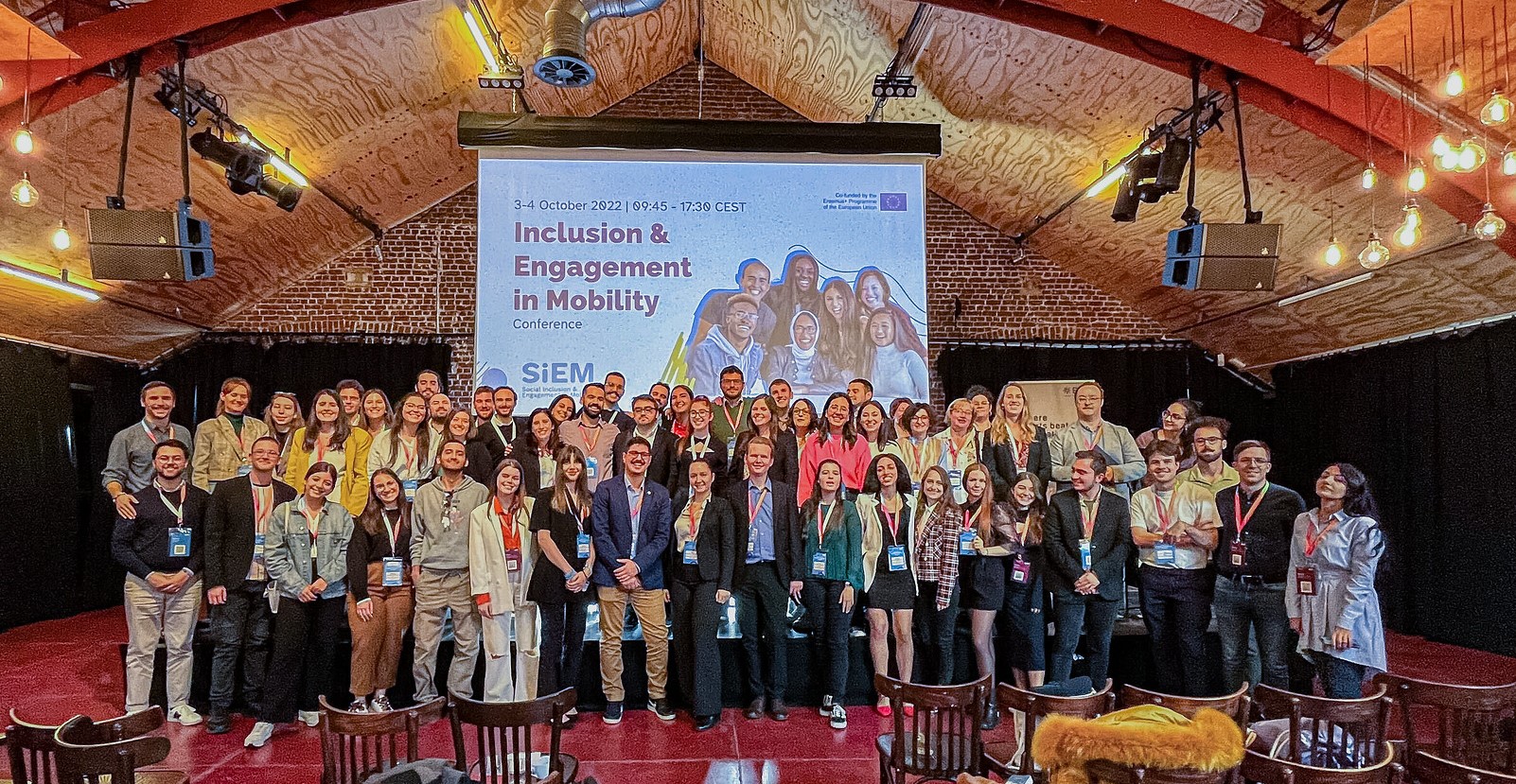
To watch the recorded conference, please visit the links below:
Inclusion & Engagement in Mobility Conference Day 1
Inclusion & Engagement in Mobility Conference Day 2
On the 3rd and 4th of October, Brussels hosted the ‘Inclusion & Engagement in Mobility: the Social Dimension of Erasmus+’ conference, moderated by Safi Sabuni, former president of the Erasmus Student Network. The event was organised as an official closing ceremony for the Social Inclusion and Engagement in Mobility Erasmus+ project, co-funded by the European Commission.
The conference was organised within the scope of the ‘Social Inclusion and Engagement in Mobility (SIEM)’ project, Erasmus+ KA3 project on Inclusion and Social Cohesion, an important step towards making international mobility opportunities more inclusive and enabling students from all backgrounds to study, work or volunteer abroad. The conference also represented an outstanding occasion to present the main outputs of the SIEM project and stimulate a debate on how they can be implemented by the different stakeholders. The Erasmus Student Network has launched the project in collaboration and cross-European partnership between ESN, UUKi the European University Foundation, YES Forum, Vrije Universiteit Brussel (BE), University of Vigo (ES), Masaryk University (CZ), University of Latvia (LV), ESN Spain (ES) and ESN France (FR).
Almost 200 participants joined the two-day event, including European Commission representatives, professionals, international officers, policymakers, Erasmus+ National Agencies, Ministries working on education & youth, and students and youth representatives from all over Europe and beyond. It is worth mentioning that the balance between the students and other related stakeholders has been highly respected with approximately 50%-50% share of the representatives. The goal of the event was twofold: first, to discuss the possibilities of overcoming barriers to taking part in learning mobility opportunities and then, how engagement and active participation can support social integration in the host society.
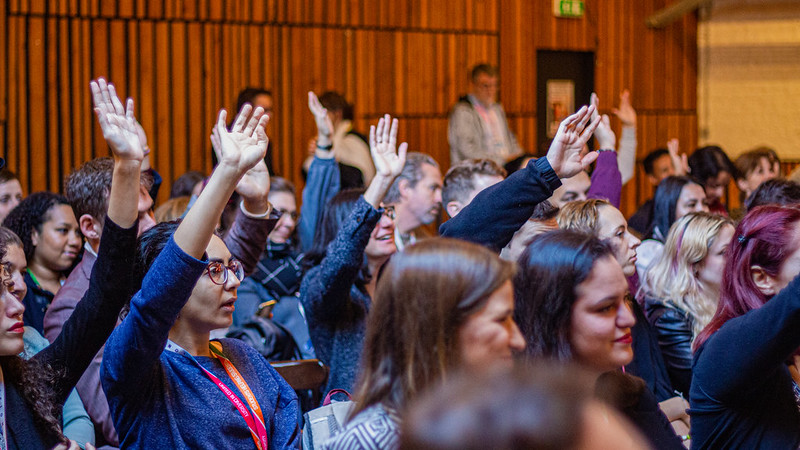
“We don’t want people to feel like permanent guests when they are abroad, we want them to feel at home.”
- Adéla Smejkalová, Vice President for Development, ESN
The SIEM conference has been a milestone in bringing a diversity of actors together to discuss and make a step forward in developing tangible initiatives to make international mobility opportunities more inclusive, and enable students from a diversity of backgrounds to study, work and volunteer abroad. The conference has offered plenty of stimulating discussions and initiatives on diversity and inclusion in student mobility and how student mobility programmes can have a lasting impact on students and their host communities.
ESN and the SIEM consortium are firmly committed to the idea that the ultimate goal of higher education in general and studying abroad, in particular, is to create a generation of Europeans who are able to transcend conventional cultural beliefs, embrace cultural diversity, and support mutual intercultural understanding in order to create a unified society that provides space for everyone.
Considering the above-mentioned values and commitments of SIEM, the first day of the conference started with a student panel joined by mobility alumni coming from diverse backgrounds to discuss experiences and the challenges they have identified during their mobilities, in line with the findings of the research report ‘’Maybe it will be Different Abroad’’, that gathered inputs of 12.000 students and 750 staff members across Europe and beyond on the inclusion in international student exchanges. The research project explicitly focused on the following backgrounds: first-generation students and migrant students, students from lower socioeconomic backgrounds, LGBTQI+ students, and students coming from rural areas.
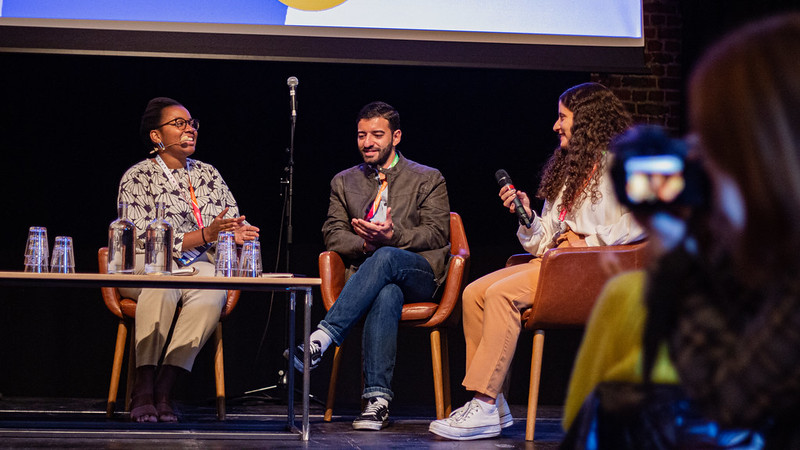
Break-out sessions for the participants were a component of the conference's program. These sessions gave the participants the flexibility to choose and join the discussion that was most applicable to them. Besides, such a format greatly enhanced the value of Q&A sessions. The breakout sessions covered the topics of Defining Minority Groups in your Country/Higher Education Institution, Engaging more challenging to reach youth, Support for students in need, refugees and migrants. Thanks to the diversity of the speakers, the topics were addressed from a variety of angles, which included sharing insights and experiences.
The participants also had an opportunity to brainstorm specific strategies for making student mobility more inclusive in terms of access, student support, and student experience at the conference's World Cafe interactive sessions. The outcomes of these discussions contributed to shaping the final recommendations and conclusions of the project.
The first day of the conference was concluded with a presentation of the Inclusion actions in the new Erasmus+ programme, including the Inclusion and Diversity Strategy, Framework of Inclusion Measures, National Action Plans and the Monitoring of the Erasmus Charter for Higher Education, delivered by Marta Gutierrez Benet - Head of the sector, DG EAC B4 Unit, European Commission.
On the second day of the conference, the 4th of October, participants had an opportunity to hear from the related stakeholders and think of ideas for fostering social inclusion in Erasmus+. There was a big diversity of speakers in this panel, including Josip Luša, SALTO Resource Centre for Inclusion and Diversity (Education and Training), Svava Finsen, Policy Officer, European Commission - DG EAC B1, Martin Bogdan, Policy Officer, Academic Cooperation Association, Lucia Gennaro, ARQUS European University Alliance and Katrina Sproge, Vice-President, European Students´ Union.
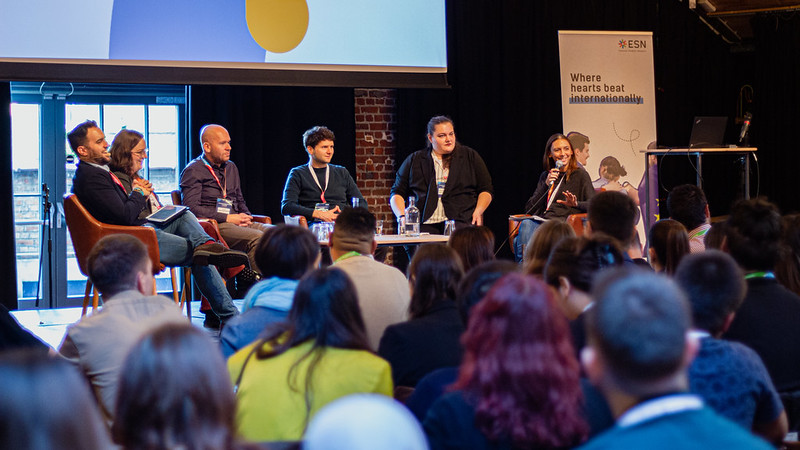
Afterwards, The Erasmus Student Network presented project recommendations on adapting the Erasmus+ documents, such as the programme guide, the grant agreements, or the ECHE monitoring system, in order to make Erasmus+ more inclusive. These recommendations target European Institutions, National Agencies and Higher Education institutions, seeking to provide concrete proposals that can lead to changes in the documents in the near future.
The Erasmus Student Network introduced the Erasmus Generation Portal at the SIEM conference, which was noteworthy as it connects useful services for students, improves peer-to-peer information about student mobility, increases civic engagement, and measures the social impact of exchange. The Grant Simulator tool is one of the most prominent features of the Erasmus Generation Portal, which responds to students' expressed need for clear and easily accessible financial information on their mobility grants. The grant simulator will allow the students to make a simulation based on general Europe-wide rules in respect to the Erasmus+ program guide. They will receive an estimate based on their mobility type, duration, and location.
Every participant was able to find an inspiring story to listen to and learn from on the second day of the conference, as it offered a diversity of topics during the poster sessions and ignite presentations. Additionally, the breakout sessions were dedicated to the broad topic of success stories through impactful initiatives, which included concrete presentations on Inclusion Practices in Mobility and Engaging students in society. The breakout sessions on Day 2 brought together speakers from a diversity of backgrounds, knowledge, and experience to discuss the crosscutting initiatives and ideas with the audience. Such topics included “How to use cross-sectoral engagement to improve access to mobility: Erasmus in Schools and beyond”, “Mobility outside of the Erasmus+ programme - How can we make it inclusive?” and “The role of student accommodation in making mobility more inclusive”.
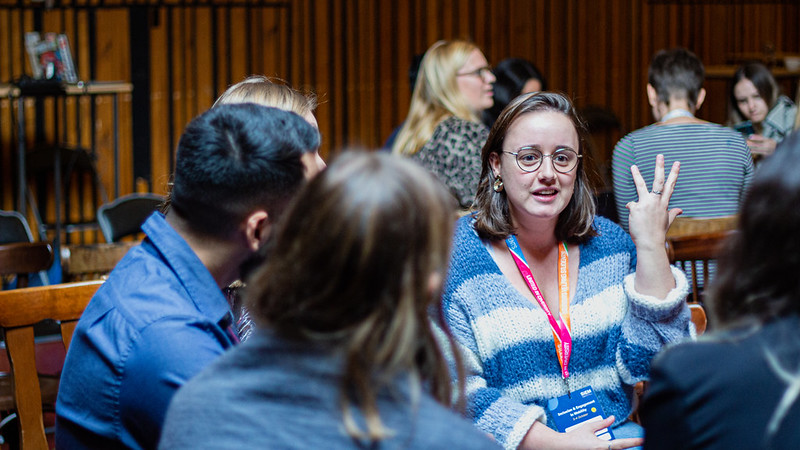
The concluding panel discussion was moderated by the Director of the Erasmus Student Network, Wim Gabriels, and explored the importance and possibilities of civic engagement in international education together with the following panellists: Emmanuelle Gardan, Director of the Coimbra Group of Universities, Justine Gaudillat, Director of Erasmus Student Network Besançon, Tiago Diniz, Advisor to the Director at the Portuguese Erasmus+ National Agency, Stefanie Klose, Project Manager and lecturer at the Freiburg University, EPICUR European University Alliance, Berta Paz, Vice-director of the European Observatory of Service-Learning in Higher Education (EOSLHE), member of the European Association of Service-Learning in Higher Education (EASLHE), and President of the Asociación española de Aprendizaje-Servicio Universitario, ApS(U). The keynote speaker, Juan Rayón González emphasised the role of student engagement in making mobility more inclusive and impactful and closed the conference with a moving message:
“think about students as actors of change, bring them to the tables of decisions because they will make an impact. Collaboration is better than confrontation’’.
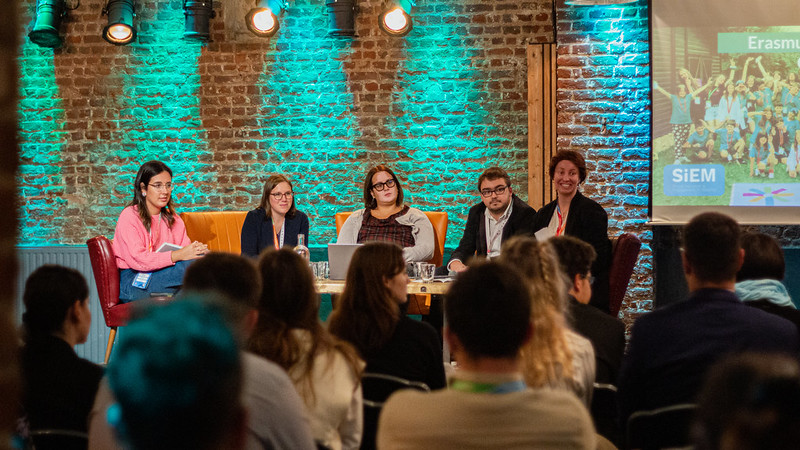
ESN believes and strongly advocates for the idea that civic engagement and participation in democratic life is one of the horizontal priorities of the Erasmus+ programme and also a core part of inclusion, helping students to develop a feeling of belonging to their hosting communities, in line with the objectives of the Erasmus+ Inclusion and Diversity Strategy. In 2023, ESN will kick start the “Enriching Communities through Engaged Mobilities” project, a new Erasmus+ collaboration project focusing on how civic engagement on an exchange can lead to more impactful and inclusive mobilities,
SIEM team expresses their gratitude to all the participants of the conference and remains available to support the follow-up initiatives from the related stakeholders that aim at widening participation, encouraging community engagement, and peer-to-peer interaction among mobility students.

Follow ESN